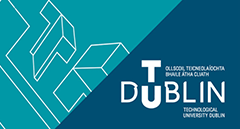Author ORCID Identifier
0000-0002-5858-2694
Abstract
Food production and consumption are emblematic of challenges to operate within planetary boundaries, whilst providing minimum access for all. They draw on natural and human resources and are de facto drivers of land-use. Moreover, their recognition in the United Nations Sustainable Development Goals has spurred growing awareness of food system fragility reflected in dietary orientation, waste streams and food security. Education is a key lever in transformation for food system resilience. Yet, food sustainability competencies and their signature pedagogies are in their infancy. This paper offers a reflection of their development at TU Dublin’s School of Food Science & Environmental Health, which has integrated sustainability in its strategic orientation. Foundations for transformation emerged in 2020 when the School co-created, with its students, a professional development programme to build capacity for integrating sustainability in its education portfolio. Informed by industry, publications and policy frameworks, the programme assimilated inputs from stakeholders across the food system, including enterprise and the public sector, food professionals and sustainability experts. The School joined an Erasmus+ funded initiative to create a model for developing sustainability competences through service learning (NEMOS).
An initial benchmarking was undertaken using a TU Dublin tool that mapped modules to the SDGs and measured sustainability embeddedness using AASHE-STARS. A thematic analysis of staff interviews and student focus groups revealed 70 food sustainability competencies over 9 categories: farm practice; climate change; product development; circular bioeconomy; waste reduction and valorsiation; measurement and reporting; food safety regulation; environmental impact; and sustainable food business. It noted congruence between skills developed through service learning and the epistemological basis for sustainability. Perceived barriers to transformation included regulation; slow adoption of innovation; supply chain fragility and marketing orientation. Whilst this case is limited to one school’s journey, it contributes to an understanding of food-sustainability competency development through service learning.
Creative Commons License

This work is licensed under a Creative Commons Attribution-NonCommercial-Share Alike 4.0 International License.
Recommended Citation
Dunne, Julie L.; Barry-Ryan, Catherine; and MacMahon, Cormac H.
(2024)
"Embedding sustainability in food degrees: A Case-study of service-learning as a signature pedagogy for developing food sustainability competencies,"
Irish Journal of Academic Practice:
Vol. 11:
Iss.
2, Article 8.
doi:https://doi.org/10.21427/vj65-ad03
Available at:
https://arrow.tudublin.ie/ijap/vol11/iss2/8
DOI
https://doi.org/10.21427/vj65-ad03

